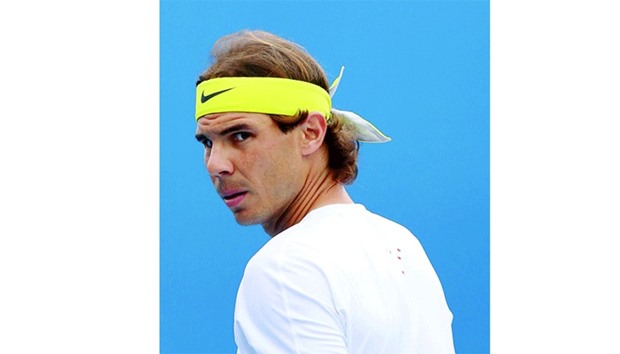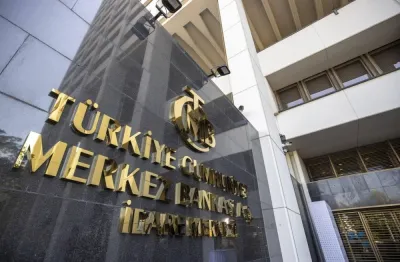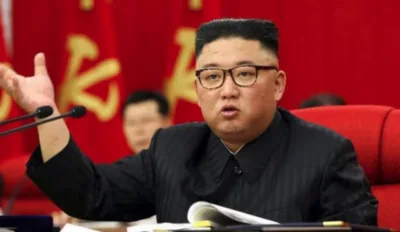Wimbledon awoke from its spring slumber last week, trying to blow away the inconvenient cloud of corruption that nearly everyone else in tennis seems to find more threatening, but fell short of a convincing response.
There can be no doubt the game’s image is under intense scrutiny: Rafael Nadal, with 14 Grand Slam titles to his name, has issued a defamation writ against a former French sports minister for alleging he had doped in 2012, and also wrote a letter to the International Tennis Federation (ITF) asking for all of his drugs test results to be made public; five-times Grand Slam champion Maria Sharapova waits nervously for a final judgment on her failed drugs test; and the Tennis Integrity Unit recently announced that 48 matches this year have come to notice for suspicious betting patterns.
Yet, while unseasonal snow flurries flicked at the grass outside, the All England Club chairman Philip Brook sought to deny the perception that the game’s authorities are complacent in responding to these problems. “It’s safe to say it hasn’t been hurt,” he said of the sport’s image since reheated claims of gambling and drugs use surfaced at the Australian Open in January.
He pointed out that the club was working closely as one of seven partners—along with the Association of Tennis Professionals, the Women’s Tennis Association, the International Tennis Federation and the other three majors—to crack down on corruption.
“Wimbledon’s existing commitment to integrity in tennis and at the championships will be further reinforced with investment in a number of additional measures,” he said.
These, he added, would include “stricter accreditation procedures, additional data provision, monitoring and analysis, increased education and support for players and officials, and increased anti-doping measures”.
However, the independent review set up in January as a response to the Australian Open furore will not hand down its judgment until the end of the year.
And Brook’s assertion that the TIU’s revelation of more dubious gambling scams is a very small percentage of all those played around the world is,
while undeniably true, not altogether comforting.
Chief executive Richard Lewis said Wimbledon would provide whatever funds were necessary for the TIU to efficiently monitor the championships in June. But he would not specify an amount, beyond describing the contribution as “whatever it takes”.
“We just think that, whether it’s integrity issues or anti-doping issues, we feel it’s right that Wimbledon should enhance what is out there. We have a lot of confidence in the anti-doping programme and it would be wrong to go into details about what we are investing in,” he added.
Nor would Lewis be specific about where the club’s involvement in testing would begin.
“I would imagine it is when the player’s come on site,” he said.
“It is this sort of stonewalling—perhaps a legacy of years of protecting the club’s privacy and image—that leaves space for wondering.
“It would be a great shame,” Brook also said of the possibility of Sharapova being unable to compete at the championships.
“She is a former champion here at Wimbledon, very popular with the crowds. But we need to let due process take its course.”
That is undeniably true, and Sharapova, the most high-profile player of the modern era to fail a test for performance-enhancing substances, must be allowed to put her case.
In other business, the club announced prize money at Wimbledon this year will rise 5% to £28.1mn, the men’s singles winner getting a 6.4% pay rise to a neatly rounded £2mn.
Transparency can prevent ‘stupid’ accusations, says Nadal
Fourteen-time Grand Slam champion Rafael Nadal believes his call for all his anti-doping tests throughout his career to be released to the public is the only way to end the scourge of doping accusations in tennis.
Nadal filed a lawsuit against former French sports minister Roselyne Bachelot last week after she accused him of covering up a failed drugs test. The Spaniard then requested that the International Tennis Federation release the results of his anti-doping tests throughout his career and in the future.
“My philosophy is easy to understand. I believe in my sport, that is the most important thing, I believe my rivals are clean, our sport is clean and I believe in our anti-doping programme and it is independent one,” Nadal said yesterday.
“The sport should be clean and must look clean. In my opinion it is much better for the transparency of the sport in general to say Rafa Nadal is doing an anti-doping control today, the result will be in two weeks and in two weeks you publish the results, the anti-doping control is negative.
“That will be much easier for everybody, it should be much easier for the world of sport and for sure will be easier for you guys (the media).
“You don’t have to think, you just have to read and for the people at the same time too. They don’t have to create opinions, they have the proof.”
The nine-time French Open champion insisted his pursuit of Bachelot is about protecting his image and pledged that any compensation from the suit would be donated to a French charity.
“I have full confidence in the French justice,” added Nadal. “I feel happy that I don’t need money. It’s something about image, it’s something that the people is not free to say any stupid thing in any time what they think in any moment without knowledge about the things. If at the end of the day, as I said in my communication, I take some money from that it will be to a French foundation.”

Rafael Nadal


